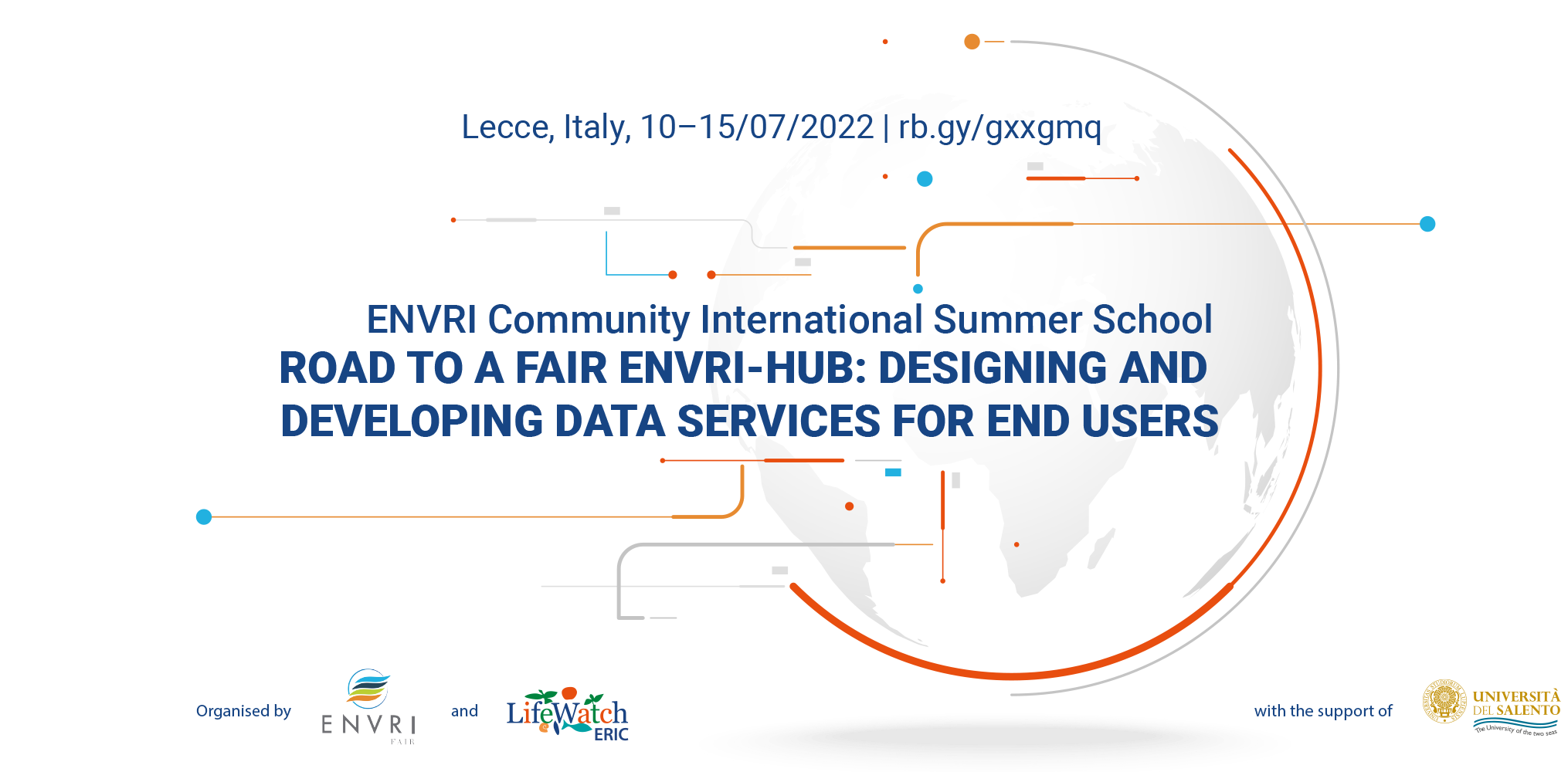
We are delighted to announce the 2022 edition of the ENVRI Community International Summer School. And this summer, we are back in person!
The Summer School, now at its fifth edition, is organised by ENVRI-FAIR and LifeWatch ERIC and will take place in Lecce, Italy, from 10–15 July. This edition’s title is “Road to a FAIR ENVRI-Hub: Designing and Developing Data Services for End Users”, and it will cover topics such as user interfaces, packaging of services, reusability and validation of services, and building and supporting networks through the lens of the ENVRI-Hub approach.
This School is therefore mainly aimed at IT architects, Research Infrastructure (RI) service developers and user support staff, and RI staff working on user interaction and community/network building.
The Summer School will welcome participants on the afternoon of Sunday 10 July with an opening event, while the actual School programme will last from Monday to Friday afternoon, closing with a certificate ceremony. Two online webinars are also planned to take place in the third and fourth week of June on specific use cases, in preparation for the School or to attend as stand-alone sessions.
The outline of the School programme is as follows:
- Introducing the ENVRI-Hub (concept and architecture)
- Learning to know your end users and their expectations: requirements elicitation
- Creating high quality documentation and usage examples to support service end users
- Developing services and fostering reusability/interoperability among them
- Validating and evaluating your services
- Participants’ presentations, school evaluation and certificates
Successful applicants to “Road to a FAIR ENVRI-Hub: Designing and Developing Data Services for End Users” will be offered accommodation and lunch each day in the beautiful baroque city of Lecce in Southern Italy, and will be invited to “extracurricular” activities such as restaurant dinners and excursions in the surrounding area.
Interested persons are invited to apply by 26 June by filling in the sign-up form here. Follow LifeWatch ERIC and ENVRI Community updates!
You can access the dedicated minisite with more detailed information on the School here.